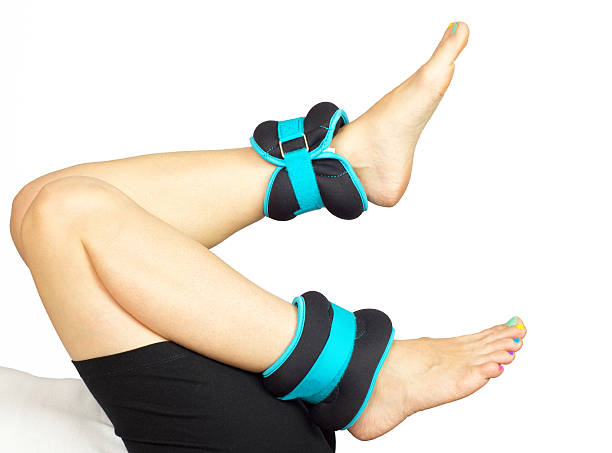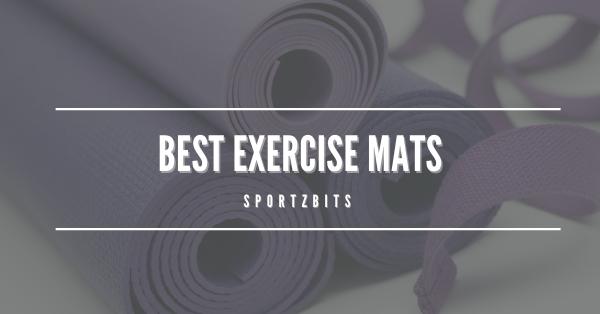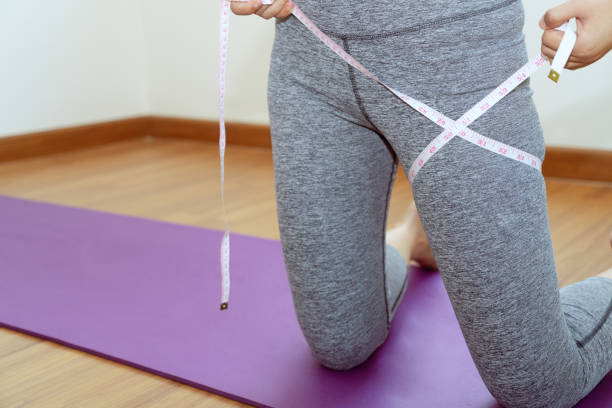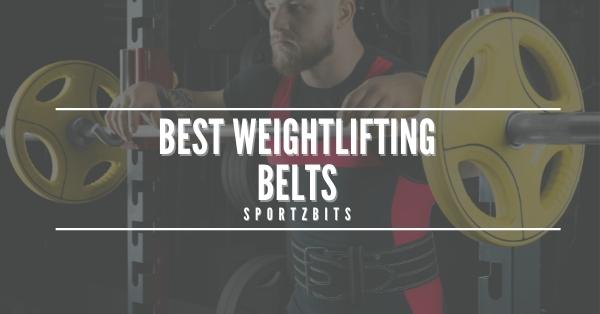If you are just starting out in strength training and unsure about the right weight of dumbbells to begin with, it would be advantageous to commence with weights on the lighter side. This affords you the opportunity to experiment with different techniques and the space to make mistakes, both of which are essential aspects for any beginner.
If you’re feeling more confident and ready to take on more weight, then, by all means, go for it! Just be warned that it may take longer to learn the techniques and improve your stamina.
What Happens to Your Muscles When You Lift Weights

When you lift weights, the muscle group in your body responds by growing larger and stronger. This is because when you work your muscles, they break down a bit and then rebuild themselves bigger and stronger than before. This process is called muscle hypertrophy, which causes your muscles to get bigger and stronger when you lift weights.
This can be a good thing, but it can also be harmful. Lifting weights too often or too long will cause your muscles to get bigger and stronger, but this is not always a good thing. It can make you weak and sick if you do it too long.
What Factors Should You Consider When Choosing a Weight Size?

When it comes to upper body exercises using weights, one of the most important decisions you will make is what dumbbell weight and size to utilize. This decision will affect your form, technique, and ultimately your results. So, how do you choose the right weight? Here are factors to consider:
Experience Level
If you are a beginner in strength training, start with weight dumbbells to focus on strengthening your biceps and practicing proper form. As you get more experienced, you can gradually increase the weight you are using.
Weight Capacity
It would be best if you used a weight that is challenging but still allows you to complete all of the reps with good form. If the weight is too light, you won’t see any results; if it’s too heavy, you could injure yourself.
Size of The Weights
The size of the weight is important to consider when lifting. When selecting a weight, you should choose a challenging but manageable weight. If the weight is too heavy, you will fatigue quickly and be less likely to complete the desired number of repetitions. If the weight is too light, you will not gain the desired benefits from your workout.
Ease of Use
When choosing weights to use during your workout, it is important to find one that is comfortable. If the dumbbell weights are too heavy, you may not be able to lift them or perform the exercises correctly. If the dumbbell weight is too light, you will not see the results you are hoping for.
Finding the right dumbbell weight to use can be tricky, but it is worth taking the time to find something that feels good and is challenging enough to give you results. This will help you get used to the motion of the exercises and avoid any injuries.
As you progress and become stronger, you can gradually use heavier dumbbells until you reach your desired difficulty level.
Storage Space
One of the main concerns of people who are into fitness and bodybuilding is the lack of space to store all the weights they need. If you’re tight on space, these tips will help you organize your weights and make the most out of your storage area.
Avoid stacking the weights on top of each other. Stacking them up this way can make it difficult to see the weight you are lifting and make it hard to move the weight around. Instead, store the weights in a vertical position.
This will allow easy and convenient access to the dumbbell weight you need without having to sift through a bunch of weights stacked on top of each other.
Keep weights at waist height. This is the most convenient height because you’ll be able to see the weight while you’re doing your workout, and it will also allow you to grab the weight without bending over or going any lower than waist level.
If you are not sure of the height at which you should store your weights, ask a personal trainer for help. Now that you know how to store your weights, you can start adding weight to your workout and see how many sets you can do.
Price
Weights are an important part of many workouts, but they can be expensive. The price of weights varies depending on the weight and the brand. Heavy weights tend to be more expensive than light weights. Steel weights are often more expensive than plastic weights. Some brands are more expensive than others. It is important to do your research before you purchase weights to find the best deal possible.
Durability
Regarding durability, weights are often considered one of the most resilient equipment in a gym. But do they last forever? And if not, what can be done to make them last longer?
There are a few ways to increase the lifespan of weights. Some are more effective than others, but they will help make your weights last longer.
- Use proper storage
- Use proper wrapping
- Keep the weights in their original packaging
How Do You Determine Your Starting Weight Size?

When it comes to finding the right starting size for your weight, there are a few things you need to consider. Your height, build, and body composition all play a role in determining the best weight for you. It would be best if you also considered your lifestyle and health goals. If you’re looking to lose weight, you’ll want to start with a smaller size than if you’re trying to maintain your current weight.
Your starting size also depends on how much excess weight you have to lose. A smaller starting size will be enough if you only need to lose a few pounds. But if you need to lose more than 30 pounds, you’ll likely need to start with a larger size so that you don’t lose too much weight too quickly. Talk to your doctor or dietitian about what’s the best starting size for you.
What are the Benefits of Starting with a Smaller Weight?

We all know that to see results, we need to put in the work. And, when it comes to working out, that means lifting weights. But, just because you’re starting doesn’t mean you have to lift the heaviest weights immediately. Starting with a smaller weight may have some benefits you didn’t know about.
Manageable Weight Goals
When it comes to weight loss, many people feel they need to set their goals high to succeed. While it is important to set a challenging goal, it is also important to ensure it is achievable. Losing too much weight too quickly can be difficult and may lead to feelings of frustration and failure. When you set a goal within reach, you are more likely to succeed. Use smaller weights to gradually lose weight and achieve your ultimate goal.
More Time for Technique Practice
Most people think that to get strong, they need to lift heavy weights. While lifting heavy weights is important, lifting lighter weights for a higher number of reps can also be beneficial. Lifting lighter weights allows you to focus on your technique and increase your endurance. You are more likely to use momentum and sacrifice your technique when you lift heavier weights. This can lead to injuries. Lifting lighter weights also allows you to perform more reps, which will help you tone your muscles.
Improved Form
It is important to use the appropriate weight to maintain a proper form. Lifting too much weight can lead to sloppy form, which can cause injuries. Lifting too little weight will not provide the desired results. By using challenging but not so heavy weights that proper form is compromised, you can ensure that you get the most out of your workout.
What are The Risks of Starting with a Larger Weight?
There are many risks associated with starting with a larger weight. Here are the most common risks that can happen when you start with a heavier weight:
Injuries
Heavy weights can cause injuries because they are not supported by the muscles and ligaments in the body, as well as lighter weights. When using heavier weights, the body cannot generate enough force to keep the joints in proper alignment, which can lead to joint pain and injuries. Additionally, when using heavier weights, the muscle fibers are subjected to more stress and can become injured.
Overtraining
It is important to progressively overload the muscles to achieve the most muscle growth by gradually increasing the weight lifted. However, lifting too much weight too soon can lead to overtraining, which can hinder muscle growth and cause other negative side effects.
Burnout
Lifting heavy weights for an extended period can lead to burnout. This can be due to the body’s inability to produce energy fast enough to meet the demands of lifting heavy weights. When this happens, the body starts breaking down muscle tissue for energy, which can decrease strength and muscle size. In addition, lifting heavy weights can increase the risk of injury. For these reasons, it is important to vary your weightlifting routine and give your body time to recover between workouts.
Plateaus
You may have hit a plateau if you are trying to lose weight. This means that you no longer lose weight, no matter how much you diet or exercise. You may be tempted to start lifting heavier weights to break through the plateau. But this can backfire-you may find that you start gaining weight instead!
Lifting heavier weights can cause your body to adapt and store more fat. This is because when you lift heavy weights, your body produces more of the hormone cortisol. This hormone tells your body to store more fat, especially around the midsection. So if you are already struggling to lose weight, lifting heavy weights will only worsen things.
Increased Stress Levels
Most people believe that to see results, they need to start with lighter weights and progress their way up. This is not always the case. Starting with heavier weights can cause increased stress levels. By gradually increasing your weight, you allow your muscles time to adapt and grow stronger. If you start too heavy, you may end up injured and with no results to show.
Unhealthy Habits
Lifting too much weight too soon can lead to bad habits and injuries. It can also make it more difficult to continue lifting weights. When you lift weights, you are putting stress on your muscles. This stress can cause your muscles to grow stronger. If you lift too much weight too soon, your muscles will not have time to grow stronger. This can lead to injuries and other health problems.
Conclusion
Regarding weight size, it is important to find what works best for you. Start with a comfortable, lighter weight, and then gradually increase the size as you become stronger. Always focus on your form and never sacrifice your safety to lift heavier weights. Lastly, consult with a doctor before starting any new exercise routine.





